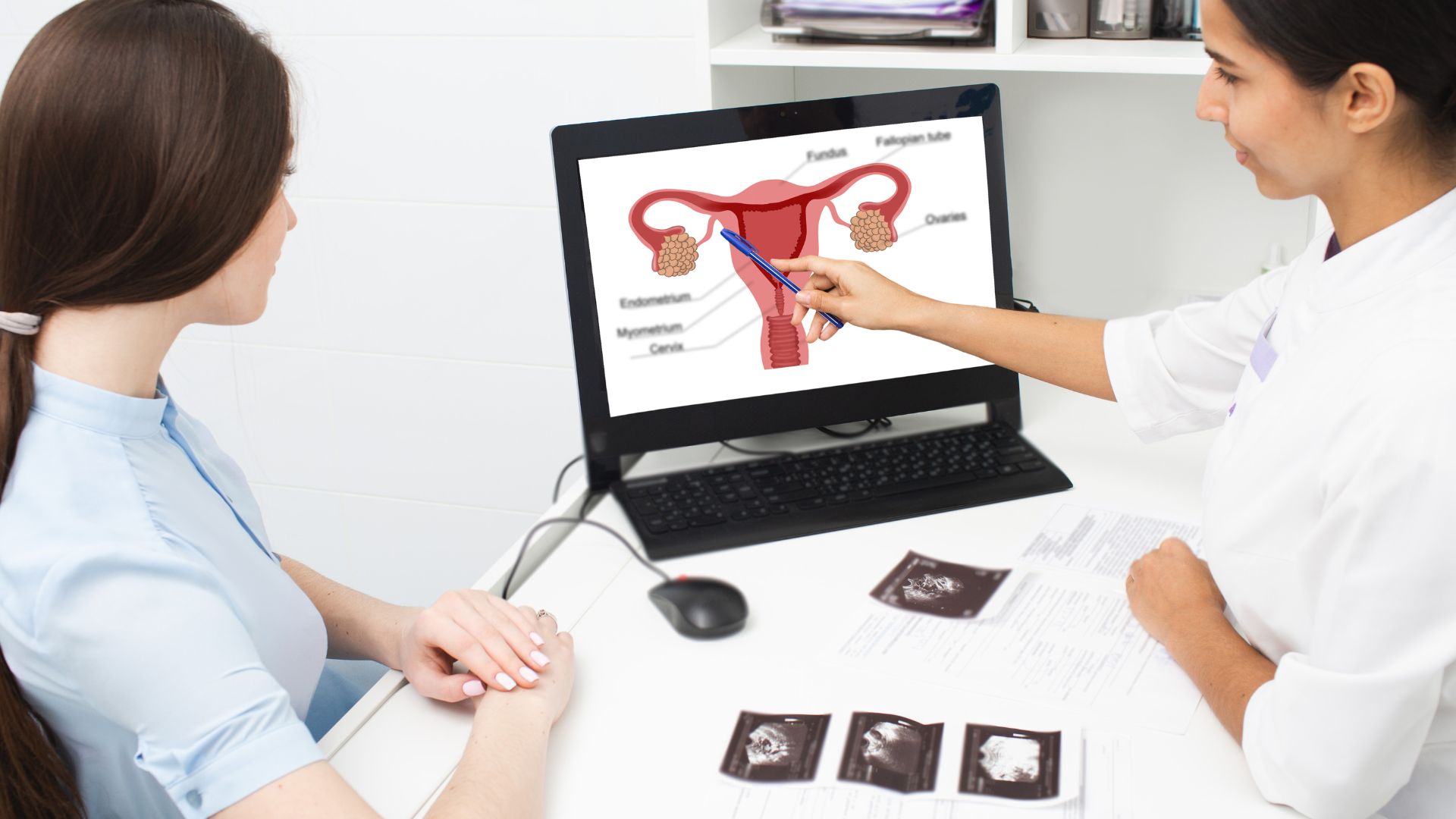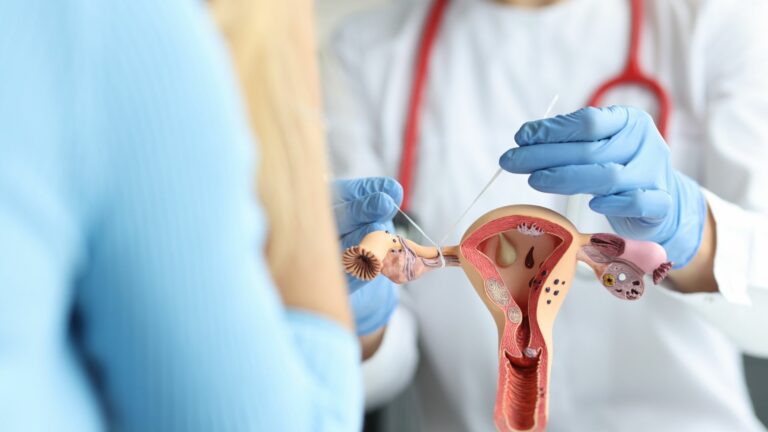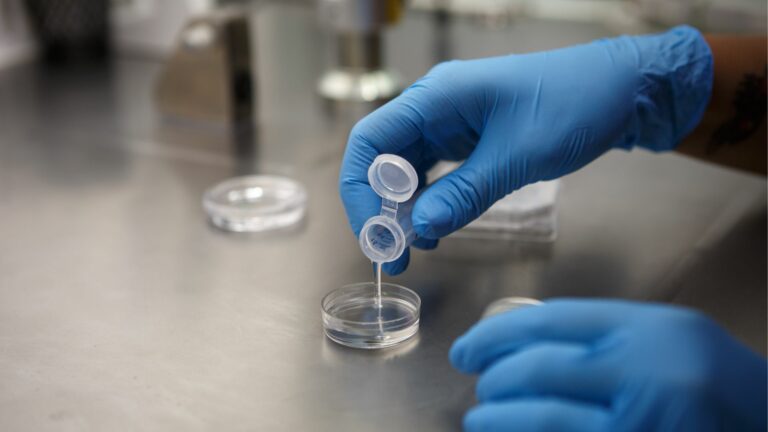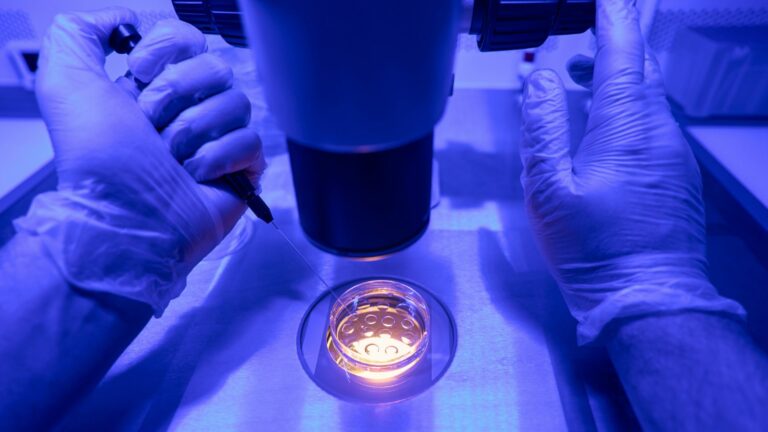
Are you trying to conceive but facing the dual challenges of endometriosis and infertility? You’re not alone!
Many women with endometriosis turn to in vitro fertilization (IVF) as a viable option to achieve their dream of parenthood. However, navigating IVF with endometriosis can be complex, with unique hurdles to overcome.
In this comprehensive guide, we’ll equip you with the knowledge and resources you need to approach IVF with endometriosis confidently.
We’ll explore how endometriosis impacts IVF success rates, discuss pre-IVF management strategies, delve into adapted IVF protocols for endometriosis patients, and acknowledge the psychological effects of IVF.
By the end, you’ll have a roadmap to pursue IVF with a sense of empowerment and knowledge.
Key Takeaways
| Topic | Takeaway |
|---|---|
| Endometriosis Impact | Endometriosis can affect egg quality, ovarian reserve, embryo implantation, and fertilization. 🥚 |
| Pre-IVF Management | Surgical removal of endometriosis lesions, medication, pain management, and lifestyle changes may improve IVF outcomes. 🩺 |
| Optimized IVF Protocols | Tailored medication protocols, pre-cycle preparations, and freeze-all strategies can address endometriosis challenges. ❄️ |
| Emotional Support | Seek support from loved ones, join support groups, consider therapy, and prioritize self-care. 🤗 |
| Finding the Right Specialist | Look for fertility specialists experienced in treating both endometriosis and infertility. 🔍 |
Understanding the Impact of Endometriosis on IVF Success
Endometriosis can present obstacles at several stages of the IVF process, affecting your fertility in various ways:
- Egg Quality: The inflammatory environment created by endometriosis can negatively impact the development and quality of eggs within your ovaries.
- Ovarian Reserve: Women with endometriosis may experience a reduced number of eggs (diminished ovarian reserve), especially if they’ve undergone surgery for ovarian cysts associated with endometriosis (endometriomas).
- Embryo Implantation: Endometriosis can interfere with the receptivity of the uterine lining, making it less hospitable for a fertilized egg to implant and thrive.
- Fertilization Issues: While less common, endometriosis may also affect the fertilization process itself in some cases. 🔬
It’s crucial to note that even with these challenges, many women with endometriosis achieve successful pregnancies through IVF.
Understanding the potential obstacles helps you work proactively with your fertility specialist to create a treatment plan tailored to your specific needs.
Management Strategies Before IVF 🩺
Before embarking on IVF, there are several ways to potentially improve your chances of success, especially when dealing with endometriosis.
Surgical Management of Endometriosis
Studies suggest that surgical removal of endometriosis lesions (excision surgery) before IVF may improve outcomes for some women, particularly those with significant pain or large endometriomas.
Discuss this option in depth with a surgeon who specializes in endometriosis excision.
Medication
Your doctor may recommend medications to suppress endometriosis growth and reduce inflammation. Common options include hormonal birth control or GnRH agonists.
These medications can help manage symptoms and may optimize the environment for subsequent IVF.
Pain Management
Endometriosis can cause severe pain, which can affect your overall well-being and emotional state. Work with your doctor on strategies to manage chronic pain, whether through medication, physical therapy, or alternative therapies.
Lifestyle Changes
While not a cure for endometriosis, healthy lifestyle choices can potentially improve your overall health and support fertility. Focus on:
- Stress Management: Prioritize relaxation techniques to tame stress hormones that could worsen endometriosis symptoms.
- Nutrition: Focus on an anti-inflammatory IVF diet with plenty of fruits, vegetables, and healthy fats. Talk to your doctor about any nutritional supplements that may be beneficial.
- Regular Exercise: Stay active with gentle forms of exercise that support well-being.
Finding the Right Specialist
It’s vital to find a fertility specialist well-versed in treating both endometriosis and infertility. Look for doctors affiliated with reputable fertility clinics and endometriosis centers.
Important Note: It’s essential to discuss all potential risks and benefits of these management options thoroughly with your doctor to make informed decisions.
Optimizing IVF with Endometriosis 🔬
Your fertility specialist will work closely with you to develop an IVF protocol that addresses your individual circumstances and the challenges posed by endometriosis. Here’s how your IVF process might be tailored:
Medication Protocols
Your doctor may adjust the types and dosages of medications used to stimulate your ovaries and prepare you for egg retrieval.
Protocols for women with endometriosis may vary from those used for patients without this condition.
Pre-IVF Cycle Preparations
Depending on your case, your doctor may recommend measures to suppress endometriosis activity before starting an IVF cycle.
This could involve hormonal treatments to create a temporary, medically induced menopause-like state.
IVF Freeze-All Strategy
In some cases, doctors might suggest freezing all embryos created during IVF, rather than transferring them fresh.
This allows for a period of rest and hormonal normalization for your body before embryo transfer, potentially improving implantation rates.
Complementary and Alternative Therapies
While research is ongoing, some women find that complementary therapies during the IVF process can offer support and potentially improve outcomes. Discuss with your doctor options such as:
- Acupuncture: Acupuncture may help with regulating hormones and improving blood flow to the reproductive organs.
- Supplements: Talk to your doctor about any nutritional supplements that could potentially support egg and embryo health.
Choosing a Clinic with Expertise
Seek out IVF clinics with a proven track record of treating patients with endometriosis. These clinics often have specialists in both reproductive medicine and endometriosis, ensuring you receive the most comprehensive care.
Important: Open communication with your fertility specialist is key throughout the IVF process. They will guide you through treatment decisions and adjust your protocol as needed.
The Emotional Journey in India 🇮🇳
The process of navigating infertility and IVF can be emotionally demanding, and the added layer of endometriosis can intensify these feelings. Here’s what to expect and how to find support in the Indian context:
Understanding the Emotional Landscape
In India, societal pressures around marriage and childbearing can add significant stress to infertility struggles.
You may experience feelings of isolation, frustration, anger, and grief. Remember, these emotions are completely valid.
Building a Support System
Don’t hesitate to confide in your partner, close family members, or trusted friends. Open communication and emotional support from loved ones are crucial during this time.
Support Groups in India
Several support groups cater to women with endometriosis and infertility in India. These groups provide a safe space to connect with others who understand your experiences, share challenges, and offer encouragement.
Here are some resources to get you started:
- The Federation of Obstetric and Gynaecological Societies of India (FOGSI): FOGSI facilitates support groups for women with gynecological conditions across India. You can find contact information for your nearest chapter on their website: https://www.fogsi.org/
- Online Support Groups: Several online communities connect women with endometriosis and infertility in India. Look for closed Facebook groups or online forums specifically catering to Indian audiences.
Considering Therapy
Therapy can be a valuable tool for managing the emotional rollercoaster of infertility and IVF.
Therapists specializing in infertility can equip you with coping mechanisms, address anxiety and depression, and help you navigate the decision-making process.
Importance of Self-Care
Prioritize activities that promote your mental and physical well-being. Meditation, yoga, spending time in nature, or pursuing hobbies you enjoy can all contribute to a sense of calm and inner strength.
Remember: You are not alone in this journey. With open communication, a supportive network, and self-care practices, you can navigate the emotional aspects of IVF with endometriosis.
Conclusion
Pursuing IVF with endometriosis may feel like a daunting journey, but with the right knowledge, support, and strategies, you can navigate this path with confidence.
By understanding the impact of endometriosis on IVF success, implementing pre-IVF management strategies, working with a skilled specialist to optimize your IVF protocol, and prioritizing your emotional well-being, you can give yourself the best chance of achieving your dream of parenthood.
Remember, every journey is unique, and success is possible even in the face of challenges. Surround yourself with a supportive network, advocate for your needs, and trust in the expertise of your medical team.
With perseverance and hope, you can overcome the hurdles of endometriosis and embrace the joy of building your family through IVF.






